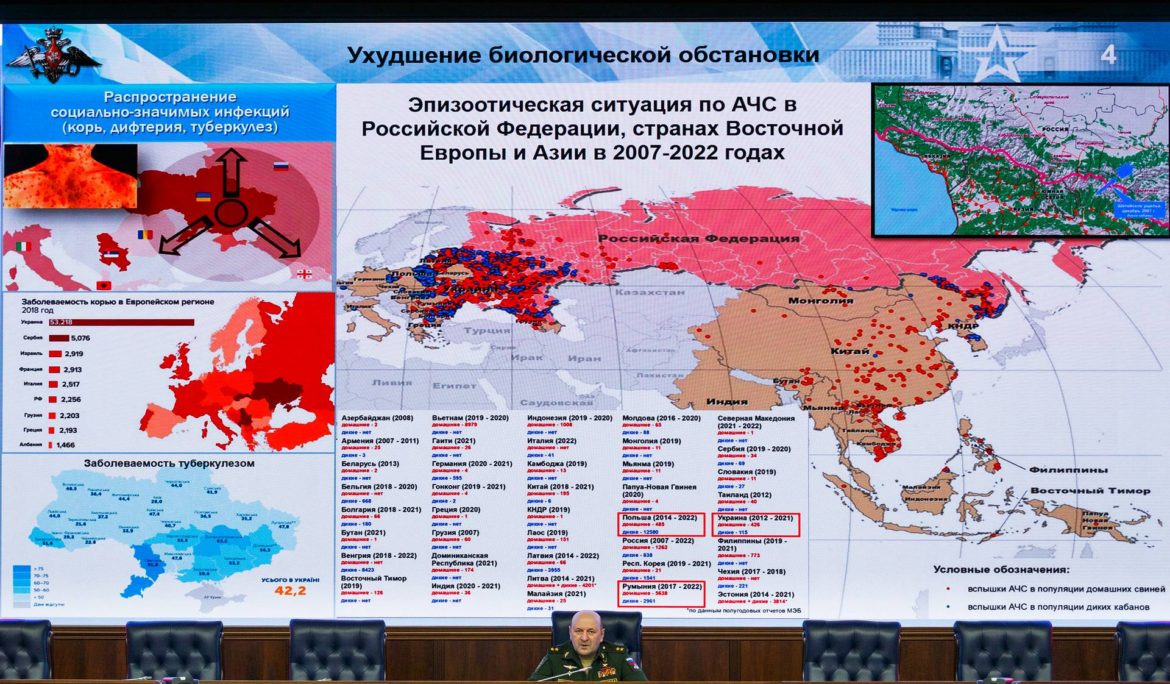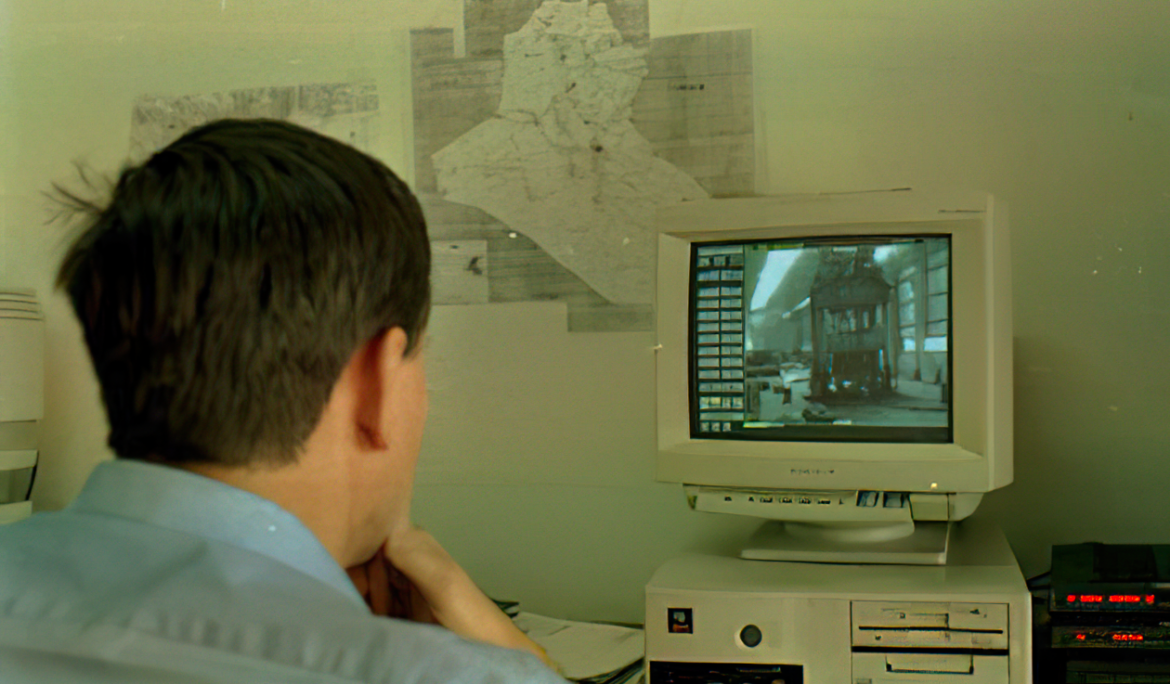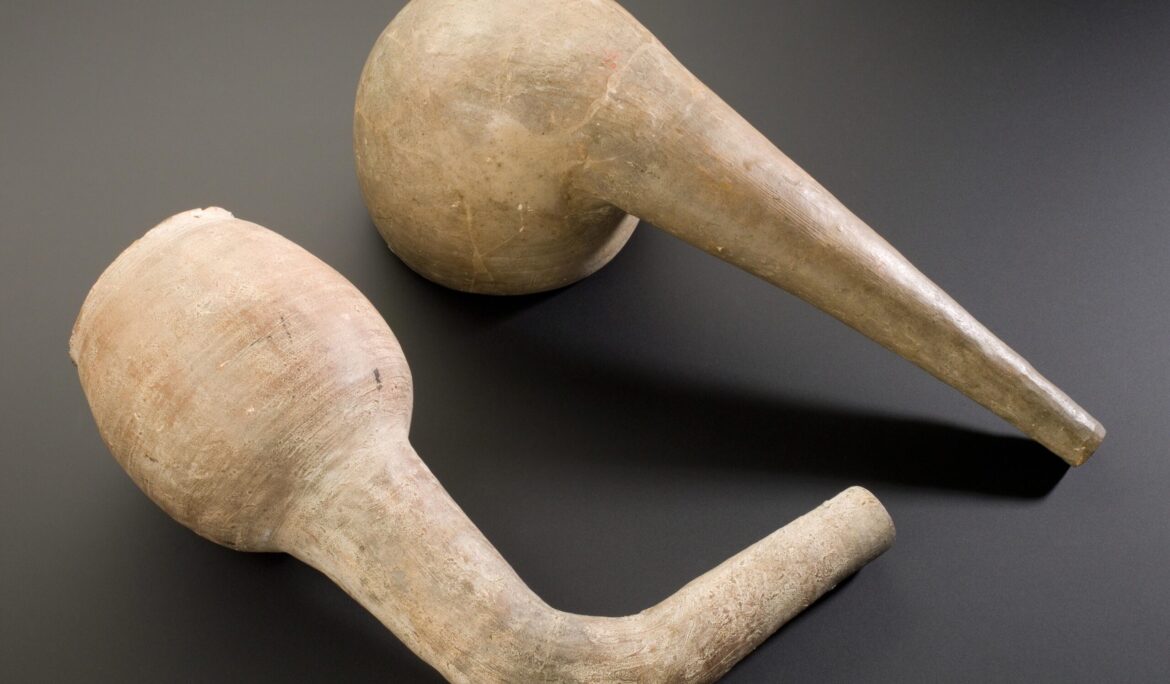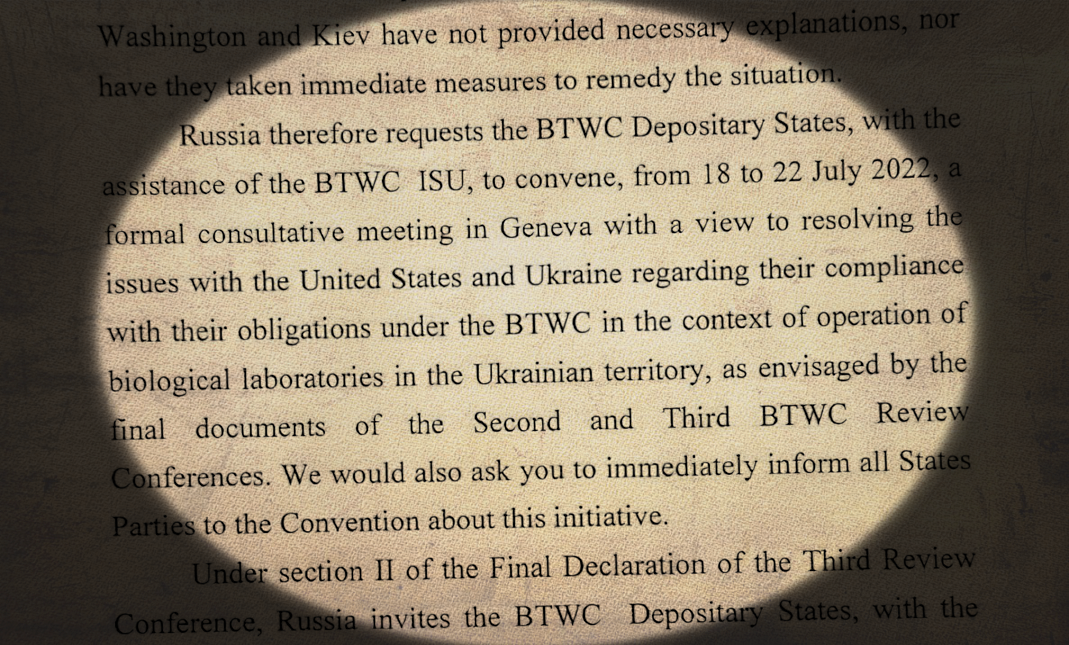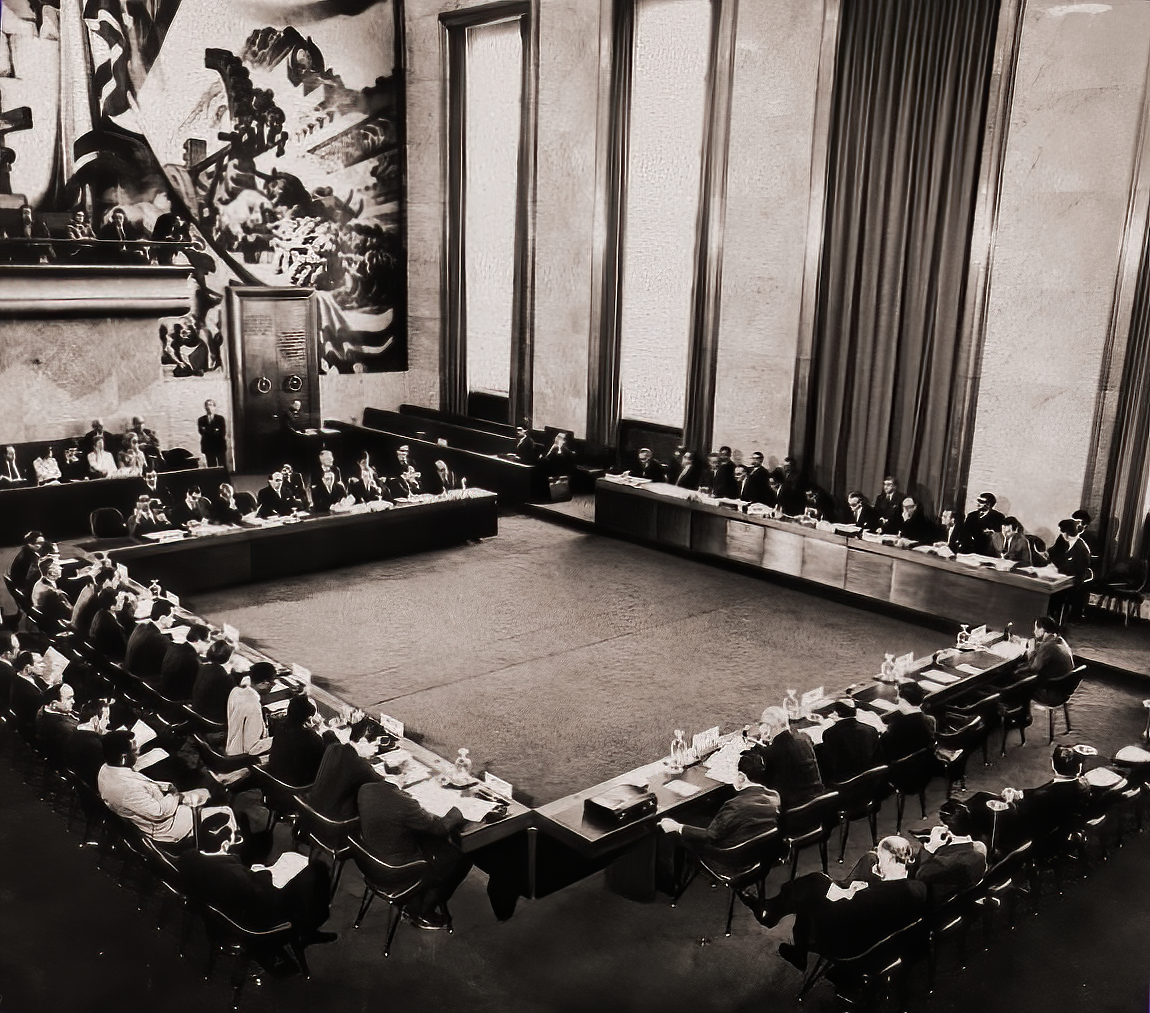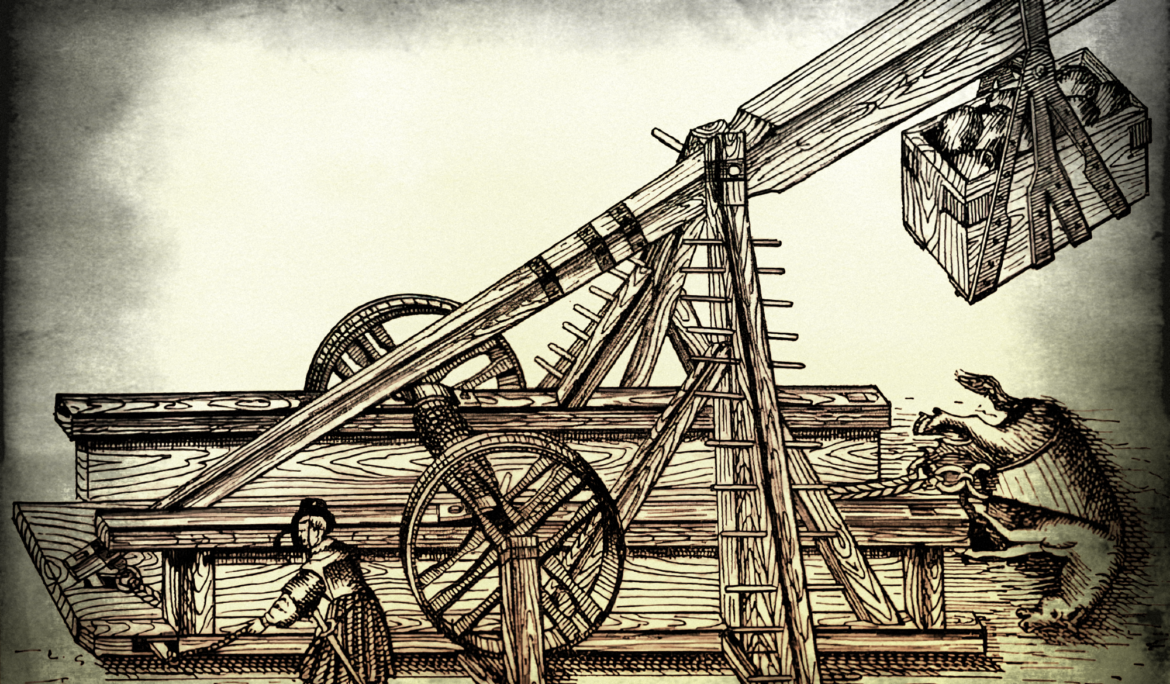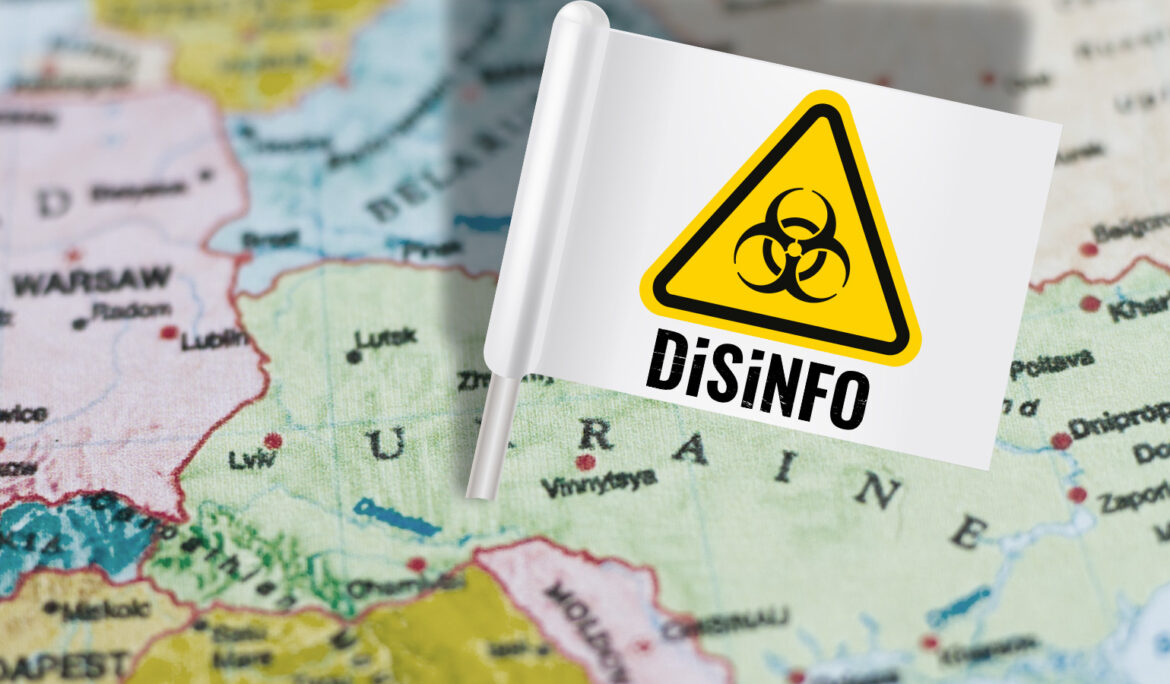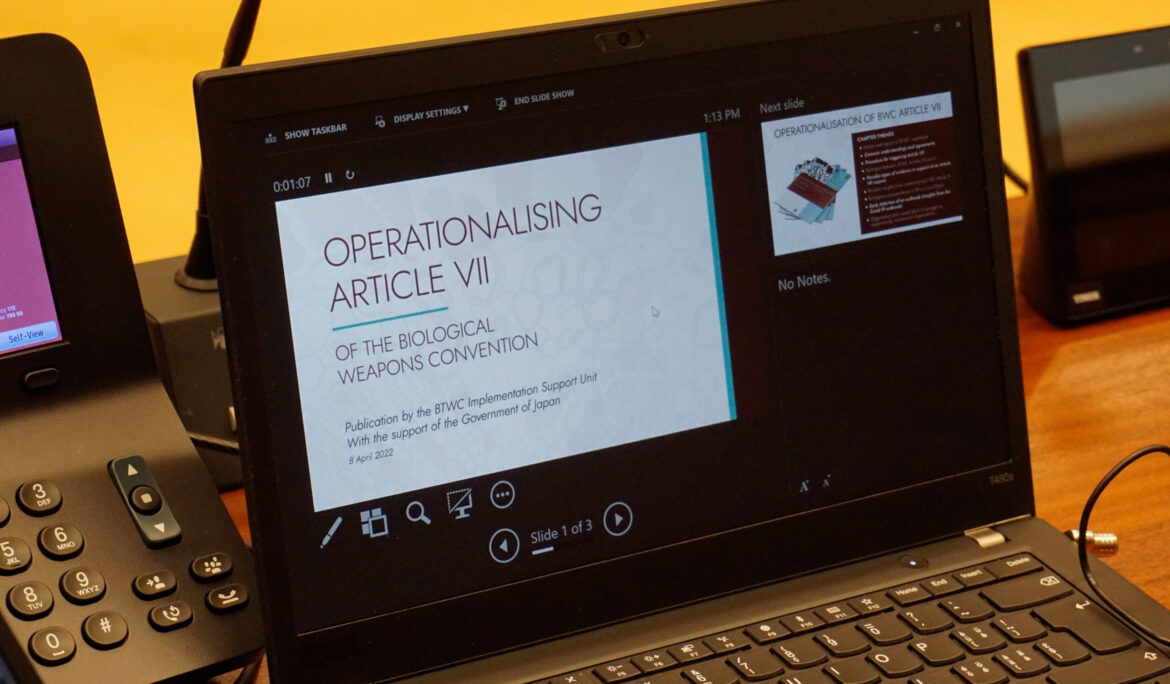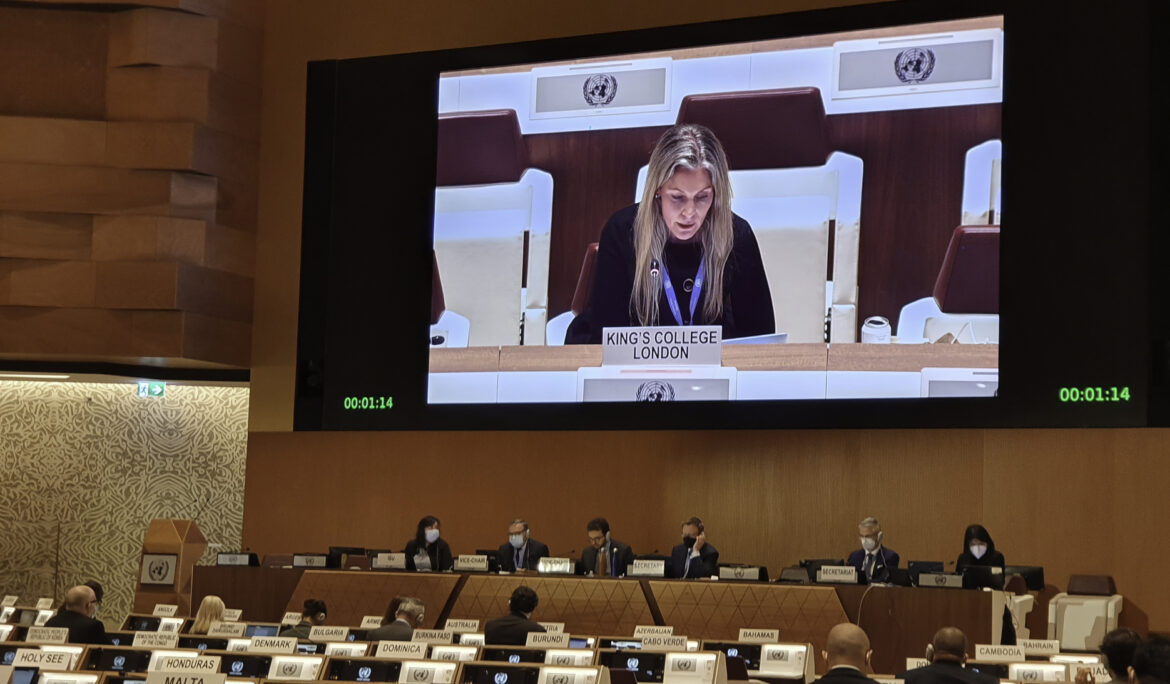Verification and Transparency: Learning from Project Coast
Introduction to Historical Notes, Issue #5 The fifth issue of the Historical Notes series was prepared by Professor Brian Rappert, Ms Lizeka Tandwa and Dr Chandré Gould. The South African Defence Force (SADF) established a top-secret chemical and biological weapon (CBW) programme code-named ‘Project Coast’ that operated between 1981 and 1995. Its primary aims were to develop a defensive capability for the SADF and weaponise chemical agents for crowd control, specifically during protests, and for the targeted assassinations of political activists in and outside of South Africa. The history and motives of this CBW programme, as far as it can …
Russia’s apoplexy over biological research – Implications for the BTWC and its Articles V and VI
Since the summer, Russia has been adding chapters to the history of the Biological and Toxin Weapons Convention (BTWC) with its allegations of treaty violations against Ukraine and the USA. So far, it has culminated in convening a Formal Consultative Committee (FCM) under BTWC Article V in September and filing an Article VI complaint accompanied by a draft resolution proposing an investigative commission with the United Nations Security Council (UNSC) in October. The FCM was inconclusive because states parties reached no consensus on whether Moscow’s allegations have merit. Notwithstanding, a large majority of participating states rejected the accusations in their …
Biological weapon monitoring in Iraq
Introduction to Historical Notes, Issue #4 The fourth issue of the Historical Notes series was prepared by Dr Gabriele Kraatz-Wadsack. She was a weapons inspector with the UN Special Commission (UNSCOM) in Iraq, later Chief of the Weapons of Mass Destruction Branch – UN Office for Disarmament Affairs. She also served in the German Armed Forces and the Federal Foreign Office. In this fourth issue of Historical Notes, she describes the only instance of international monitoring in the biological weapons (BW) area. It draws on her first-hand experience to launch and manage biological ongoing monitoring in Iraq from 1995 through …
The Retort: Evolving CBW disarmament challenges
Dr Brett Edwards (Lecturer, University of Bath) and Professor Lijun Shang (School of Human Sciences, Metropolitan University London) are collaborating on The Retort, a new series of educational video recordings via YouTube on chemical and biological weapons (CBW), their disarmament, and the evolving threats they still pose. The recordings aim to give the public a general understanding of issues ahead of the review conferences of the Biological and Toxin Weapons Convention (28 November – 16 December 2022) and the Chemical Weapons Convention (May 2023). For each video recording, the intiative takers invite an expert in the field. So far, three …
Maintaining treaty integrity in the face of biological disinformation warfare
Russia has called for a Formal Consultative Meeting under the Biological and Toxin Weapons Convention (BTWC) to address its (fake) accusations against the US and Ukraine concerning biological research programmes. This meeting will start on Monday, 5 September. Treaties are like Roses, published in CBRNe World, August 2022, pp. 61-64b [From the introduction] Article V of the 1972 Biological and Toxin Weapons Convention (BTWC) foresees in consultation and cooperation among states parties to address any problem concerning the implementation of the disarmament treaty. The First BTWC Review Conference (1980) agreed on the concept of a consultative meeting at the expert …
Reflections of a negotiator on the BTWC Ad Hoc Group
Introduction to Historical Notes, Issue #3 The third issue of the Historical Notes series was prepared by Dr Robert (Bob) J. Mathews. From 1984 until 2017, he served as Scientific Adviser to Australian delegations during the negotiation and implementation of the Chemical Weapons Convention (CWC) and efforts to strengthen the Biological and Toxin Weapons Convention (BTWC). In this third issue of Historical Notes, he reviews the efforts undertaken by the states parties to the BTWC to equip the convention with verification tools and set up an international organisation to oversee its implementation. As soon as the treaty negotiations came to …
Catapulting Cadavers: A Medieval Practice of Biological Warfare?
Introduction to Historical Notes, Issue #2 The Mongol siege of Caffa in 1346 is closely associated with the spread of the plague epidemic to continental Europe and northern Africa. A major Genoese trading post in the Crimea, its citizens escaped via the Black Sea and the Bosporus, eventually bringing the Black Death to Mediterranean ports from where it spread inland or onward to coastal cities in west and north Europe, eventually reaching even Iceland. Bad as the medieval pandemic was, its transfer to the Mediterranean basin some authors have attributed to an act of warfare: the catapulting of plague-ridden corpses …
“Biological weapons are banned; biological research is not”
Amid the barrage of lies accompanying Russia’s war against Ukraine, the Kremlin’s disinformation narrative that Ukraine is carrying out research to develop biological weapons stands out as particularly insidious. Not only does it attempt to justify Russia’s brutal invasion, but also discredit legitimate biological and epidemiological research worldwide, at the risk to global public health. In an interview with EUvsDisinfo, Dr. Jean-Pascal Zanders, founder of The Trench and an independent expert on disarmament questions covering chemical and biological weapons, talks about the crucial differences between legitimate biological research and the development of biological weapons and why Russia is engaging in …
Operationalising BTWC Article VII – A Task for the forthcoming Review Conference
[This new publication by the Implementation Support Unit of the Biological Weapons Convention and UN Office for Disarmament Affairs was presented on 8 April to delegates participating in the Preparatory Committee meeting in Geneva ahead of the Review Conference later in the year. The text below is from the preface.] Article VII is arguably one of the least detailed provisions in the Biological Weapons Convention (BWC). It comprises a single sentence: Each State Party to this Convention undertakes to provide or support assistance, in accordance with the United Nations Charter, to any Party to the Convention which so requests, …
Statement to Biological Weapons Convention Preparatory Committee, endorsed by The Trench
Statement to Biological Weapons Convention Preparatory Committee, Geneva 4 April 2022 Presented by Dr Filippa Lentzos, King’s College London Mr Chair, Distinguished Representatives: We condemn Russia’s unprovoked military invasion and its continuing war against Ukraine. We stand with the government and people of Ukraine, and we urge Russia to stop its brutal attacks. We echo the call by the World Health Organization, UNICEF and UNFPA to immediately cease attacks on hospitals, ambulances and medical staff.[1] It is an unacceptable strategy and tactic.[2] Mr Chair, Russia accuses Ukraine of working on biological weapons supported by the United States and other …


